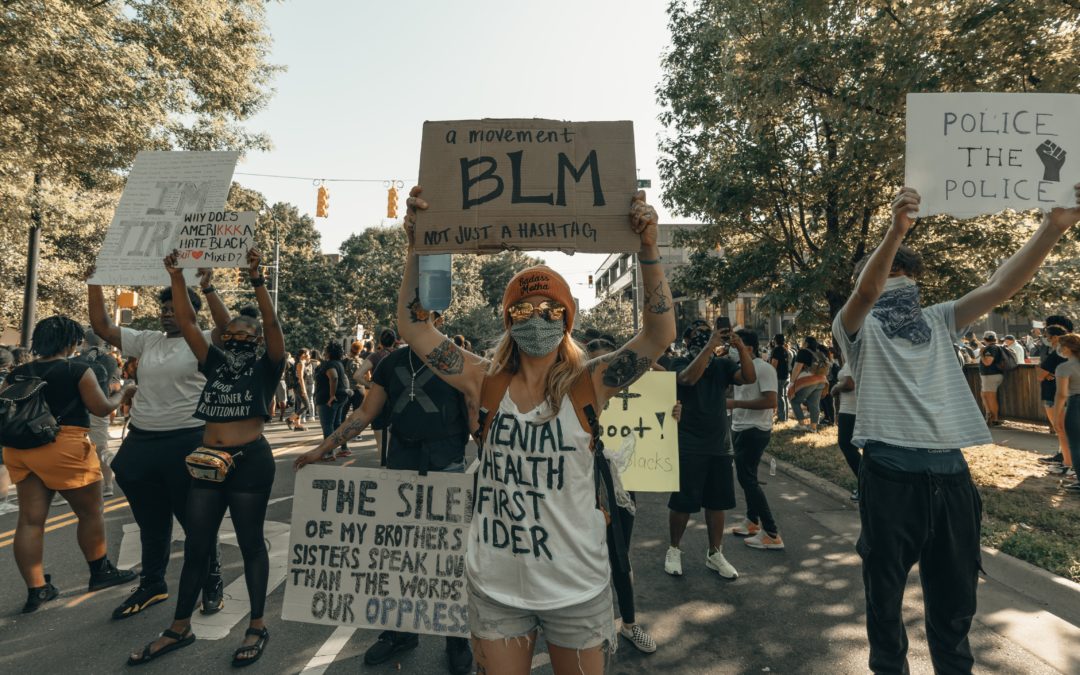
by Jonathan P-Wright | Jul 28, 2023 | Latest, Social Justice |
Photo by Clay Banks on Unsplash
A significant chapter in the fight for justice and accountability has been written as New York City reaches a historic settlement with hundreds of George Floyd protesters who faced unlawful tactics at the hands of local police during the turbulent events of 2020. The proposed agreement, recently filed in a Manhattan federal court, represents a groundbreaking moment, with the city agreeing to pay over $13 million in the largest class-action settlement ever awarded to a group of protesters.
As reported by CNN, a historic settlement has been reached, representing a monumental outcome in response to a class-action lawsuit brought forth on behalf of an impressive number of approximately 1,380 protesters. These individuals were arrested by the New York City Police Department during a series of 18 fervent demonstrations held across the city during the period of May and June in 2020. The successful resolution of this lawsuit stands as a testament to the power of collective action and the unwavering determination of those seeking justice and accountability for alleged misconduct. With this momentous settlement, those impacted by the events surrounding these protests may find solace and recognition, as the legal process takes significant strides towards addressing the grievances and concerns raised during this tumultuous period in the city’s history. The landmark nature of this settlement not only reaffirms the rights and liberties of peaceful protesters but also underscores the importance of holding authorities accountable for ensuring that those rights are upheld and protected in any civil society. This pivotal case serves as a beacon of hope for others seeking redress and serves as a critical milestone in the ongoing journey towards fostering a more just and equitable society for all. The terms of the agreement will provide eligible individuals with compensation of $9,950 each, pending approval by a judge.
The lawsuit sheds light on a series of troubling allegations against the authorities, accusing them of employing aggressive tactics that violated protesters’ rights. Among the accusations were claims of corralling protesters into confined spaces, using excessive force with batons and fists, indiscriminately deploying pepper spray, and arresting demonstrators without lawful justification or fair warning.
The protests of 2020 were a visceral response to the tragic killing of George Floyd by former police officer Derek Chauvin, an event that sent shockwaves throughout the nation and reignited the Black Lives Matter Movement. Hundreds of people from diverse backgrounds united on the streets of cities and towns across the country, standing in solidarity against police brutality and racial injustice.
In the heart of New York City, a powerful wave of voices rose, demanding an end to systemic racism and the urgent need for police reform. The demonstrations were marked by a spirit of unity and a shared commitment to driving societal change. However, the resolve of the protesters was met with an alarming response from law enforcement, who, according to the class-action lawsuit, employed unlawful tactics that violated the constitutional rights of the demonstrators.
The impact of this settlement transcends monetary compensation; it sends a resounding message about the significance of accountability in a just society. By acknowledging and redressing the harm done to protesters, the city of New York takes a crucial step toward recognizing the importance of protecting citizens’ constitutional rights, even in the face of public dissent.
While the road ahead may be long, this landmark agreement offers hope and encouragement to those who continue to advocate for meaningful police reform and an end to racial injustice. As New York City takes this historic step towards healing and reconciliation, it sets a powerful precedent for other cities and communities grappling with similar challenges. The legacy of the George Floyd protests will endure, as the voices of those who took to the streets continue to echo, demanding a future where equity, justice, and compassion prevail.
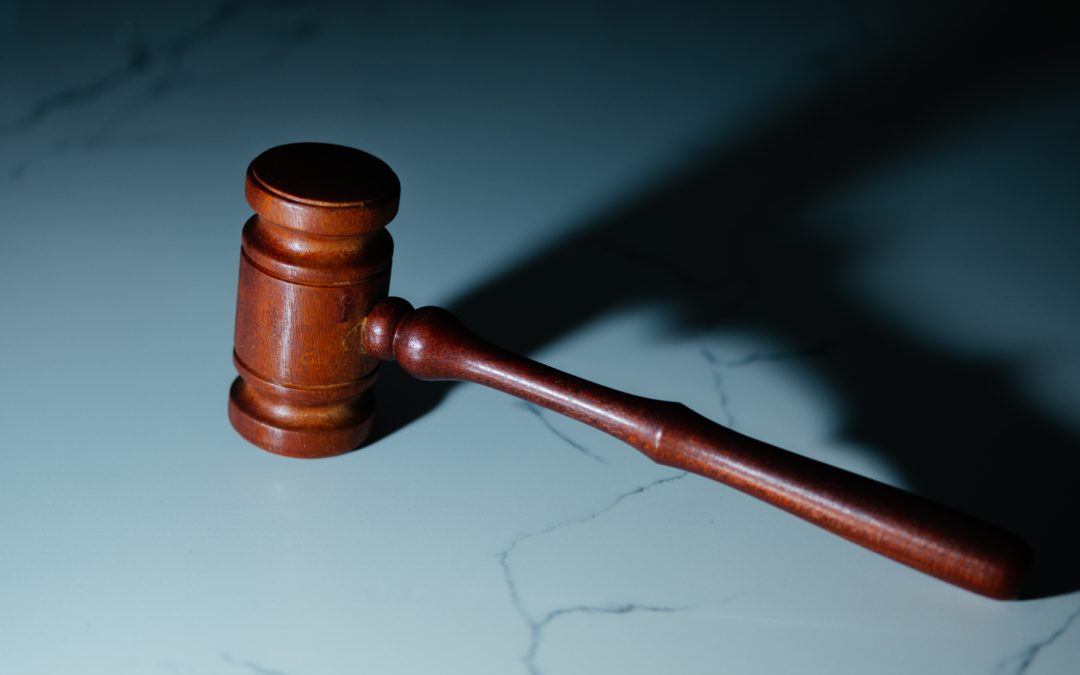
by Jonathan P-Wright | Jul 7, 2023 | Latest, POLITICS, Social Justice |
Photo by Wesley Tingey on Unsplash
Chicago, IL — A heartwarming reunion has taken place as Carlishia Hood is once again in the embrace of her 14-year-old son after a tragic shooting incident at a fast food restaurant in Chicago. The Twitter community has rallied behind Hood, expressing their unwavering support during this challenging time and shedding light on the complexities of the case.
The incident unfolded earlier this month when Carlishia Hood, a 35-year-old African American woman, found herself engaged in a heated argument with Jeremy Brown, a 32-year-old patron at the restaurant. The altercation escalated into physical violence, with Brown repeatedly striking Hood. In a courageous act of defense, Hood’s teenage son intervened to protect his mother, resulting in the fatal shooting of Jeremy Brown.
However, rather than being recognized as victims, both Hood and her son faced immediate arrest and were charged with first-degree murder. The public was outraged by the cruel and unjust treatment that Hood and her son faced, which cast doubt on the legitimacy of the legal process. Numerous individuals took to Twitter to voice their backing and unity, advocating for a thorough investigation and an unbiased assessment of the circumstances. A significant development occurred on June 26 when the Cook County State’s Attorney’s Office decided to dismiss all charges against Hood and her son. This pivotal choice has granted Hood the chance to pursue justice for the distressing incident she endured. In response, she has taken a courageous step by initiating a lawsuit against the city of Chicago and five police officers, aiming to hold accountable those responsible for her brutal attack and subsequent arrest.
During a compelling news conference, Hood shared the emotional toll the incident had taken on her and her son. She expressed how her life and her son’s life took a dramatic turn on June 18, experiencing an unforeseen and brutal assault, physical harm, and unjustified arrest. Her words resonated with countless individuals who have rallied behind her on social media platforms, amplifying her voice and calling for justice.
Carlishia Hood’s story serves as a powerful reminder of the systemic challenges faced by marginalized communities and the urgent need for transformative change. The tremendous backing and unity displayed by the Twitter community underscore the importance of collective advocacy in the quest for social justice. With ongoing legal proceedings and investigations surrounding the Chicago shooting, it is crucial that equitable treatment is afforded to all involved parties and that the truth ultimately triumphs. The outpouring of support on social media serves as a powerful demonstration of the shared resolve to confront systemic problems and foster a fairer society.
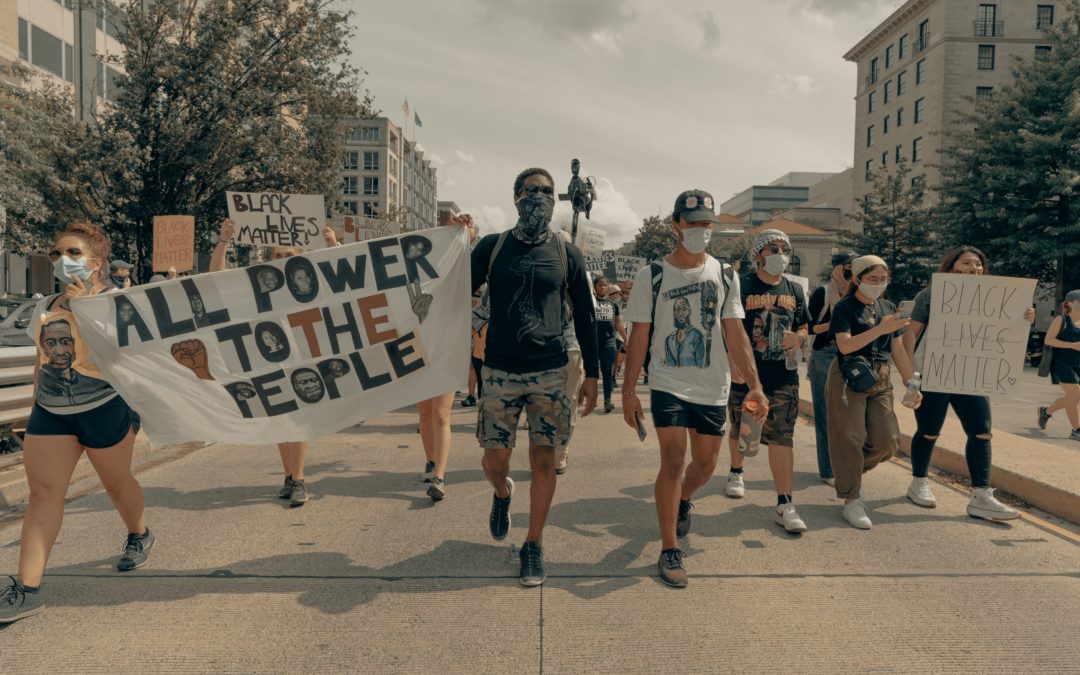
by Jonathan P-Wright | Jul 3, 2023 | Latest, POLITICS, Social Justice |
Photo by Clay Banks on Unsplash
In a significant legal decision, a judge in Washington, D.C., has ruled that the Proud Boys, a white supremacist group, must pay a substantial amount in restitution for their destructive actions towards a historic Black church. The Metropolitan African Methodist Episcopal Church, situated just a short distance from the White House, was granted a default judgment exceeding $1 million in their lawsuit against the Proud Boys. The lawsuit was initiated three years ago and sought justice for the wanton destruction of a prominent Black Lives Matter sign.
The incident, which occurred in December 2020, shook the community and brought attention to the ongoing struggles against racial injustice. The Metropolitan African Methodist Episcopal Church, renowned for its rich history and significance in the African American community, stood as a symbol of resilience and hope. The vandalism committed by the Proud Boys tarnished not only the physical property but also the values of equality and social progress.
The judge’s ruling serves as a crucial step towards accountability and reparations. It sends a resounding message that acts of hate and bigotry will not go unpunished. By holding the Proud Boys responsible for their actions, the court reinforces the importance of respecting the rights and dignity of marginalized communities.
While the financial compensation awarded to the church cannot fully repair the harm caused, it represents a tangible measure of justice. The funds will contribute to the restoration and revitalization of the affected community, reaffirming their commitment to inclusivity and unity.
This ruling stands as a testament to the resilience and determination of the Metropolitan African Methodist Episcopal Church and the broader movement for social justice. It reinforces the idea that institutions and individuals who propagate hate and division will face the consequences of their actions. By seeking legal recourse, the church has asserted its unwavering commitment to preserving the principles of equality and dismantling systemic racism.
As the community reflects on this landmark decision, it serves as a reminder of the ongoing struggle for justice and the imperative to protect the rights of marginalized communities. The fight against racism and discrimination requires continued solidarity and vigilance. The case of the Proud Boys and the Metropolitan African Methodist Episcopal Church stands as a pivotal moment in this ongoing battle, amplifying the voices of those seeking a more equitable society.
Through the determination of the Metropolitan African Methodist Episcopal Church and the unwavering support of allies, this triumph sends a powerful message. It emphasizes that acts of hate and intolerance will not deter the pursuit of justice and equality. The ruling sets a precedent for holding accountable those who seek to undermine the progress of social justice movements.
In the face of adversity, the Metropolitan African Methodist Episcopal Church and its community have shown immense strength and resilience. Their victory in this legal battle marks a milestone in the fight against systemic racism and discrimination. It serves as a beacon of hope and inspiration for all those engaged in the pursuit of a fairer and more inclusive society.
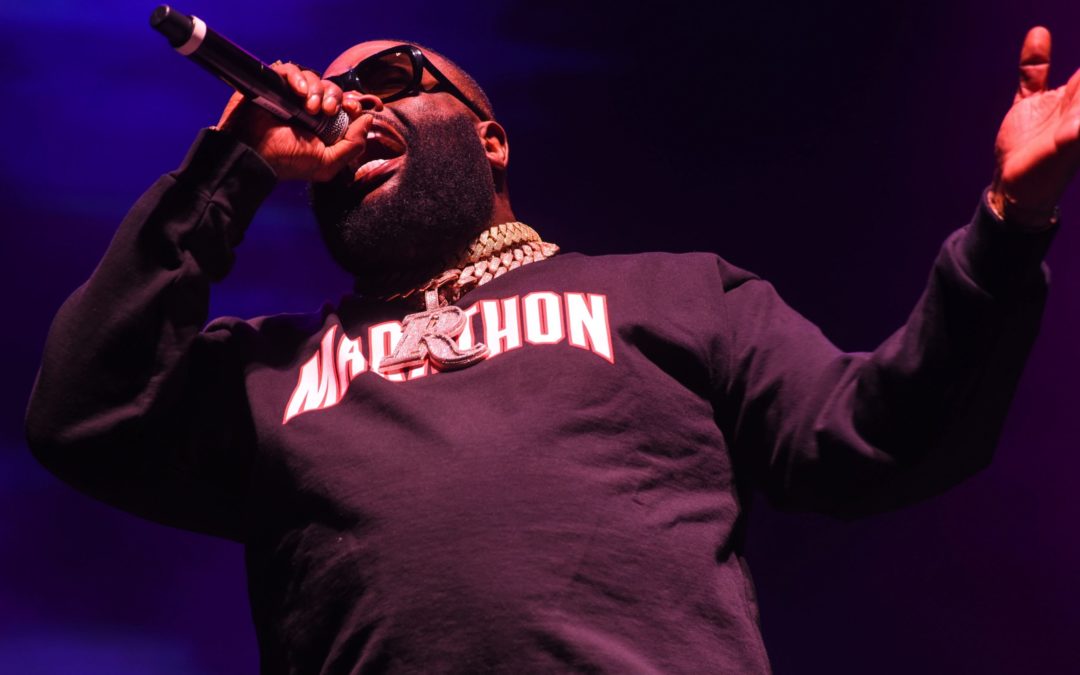
by Jonathan P-Wright | Jun 20, 2023 | Business News, Latest, Music News |
Franklin Sheard Jr / Shutterstock.com
Imagine a world where celebrities use their wealth and influence to make a difference in the lives of everyday people. This dream became a reality on June 19th, when rapper Rick Ross, also known as the “biggest boss,” made an extraordinary gesture by donating over $30,000 to a healthcare clinic in
Fayetteville, Georgia. This generous donation prevented the clinic from facing foreclosure, allowing it to continue providing essential services to the community. The heartfelt story behind his donation and its impact on the community serves as a testament to the power of kindness and empathy, especially in the world of the music business.
Rick Ross is a rap legend who’s been through a lot. He’s faced beef, lawsuits, health issues, and more. But he’s also made some of the biggest hits in hip-hop history. He’s a boss who knows how to hustle and overcome any challenge.
Through it all, he’s managed to maintain a strong connection with his roots and a deep understanding of the importance of giving back. The loss of his father at a young age played a significant role in shaping his perspective on life, and this recent act of generosity shows that he is determined to make a difference in the lives of others.
In this blog post, we will explore the story behind Rick Ross’s donation, the impact it has had on the Georgia health clinic, and the broader implications of his actions in the world of music business. So, let’s dive into the heartwarming story of how a rapper’s generosity saved a healthcare clinic from the brink of foreclosure.
The Struggling Health Clinic in Fayetteville, Georgia
Like many other small communities across the United States, Fayetteville, Georgia, is home to a local healthcare clinic that serves as a vital lifeline for its residents. We’re here to help you stay healthy and happy. Our clinic offers a range of medical services for the community, no matter who you are or what you need. Come and see us anytime! Unfortunately, the clinic was facing the threat of foreclosure due to a lack of funds, which would have forced its doors to close and left the people of Fayetteville without access to critical healthcare services.
Upon hearing about the clinic’s dire situation, Rick Ross felt compelled to step in and help. The rapper saw this as an opportunity to give back to the community and make a lasting impact on the lives of those who rely on the clinic for their healthcare needs. The donation of over $30,000 not only helped the clinic avoid foreclosure but also served as a reminder of the power of compassion and community support.
For the people of Fayetteville, Rick Ross’s donation has been a lifeline, ensuring that their local healthcare clinic can continue to provide essential services. This act of generosity has not only helped to save the clinic but has also demonstrated the incredible impact that celebrities can have when they use their wealth and influence for good.
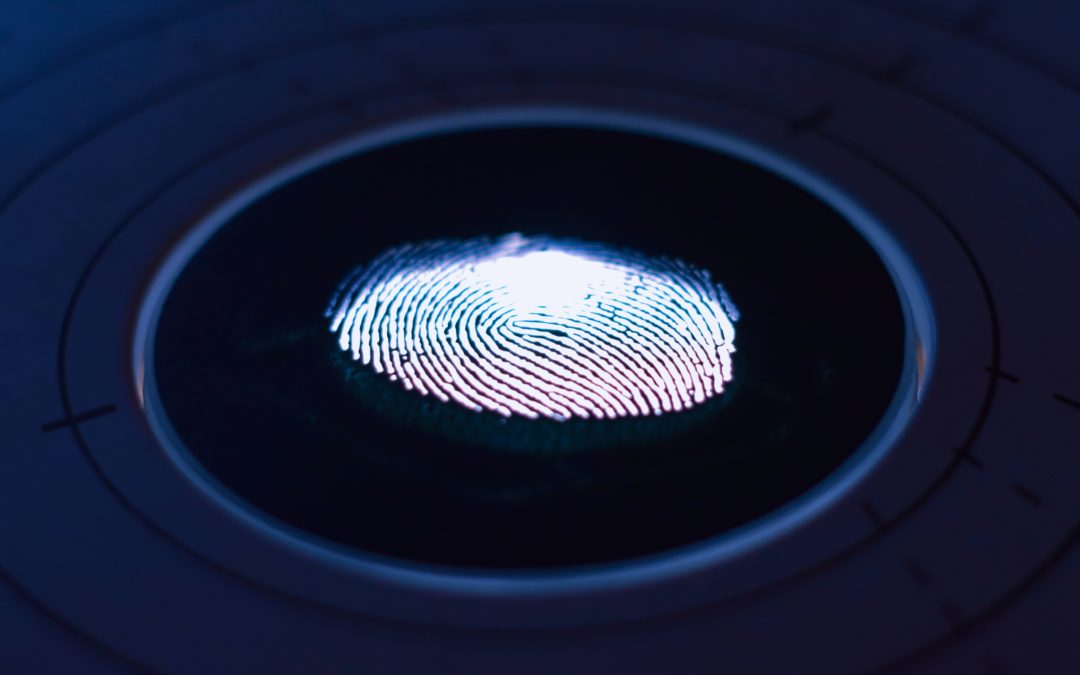
by Tanyette McCoy Davis | Apr 12, 2023 | Latest, Social Justice |
In a tragic turn of events, the shooting death of Dalaneo Martin has prompted the FBI to launch a civil rights investigation. This latest incident of police brutality against an unarmed black man has sparked outrage and calls for justice across the country. As we grapple with yet another senseless loss of life, it’s time to examine the systemic issues that allow these incidents to continue happening unchecked.
The FBI has opened a civil rights investigation after the shooting death of Dalaneo Martin. Martin, an African American man, was shot and killed by police in Kenosha, Wisconsin on March 18. The shooting occurred after police responded to a 911 call about after authorities found him sleeping in an allegedly stolen vehicle. He was not armed and did not pose a threat to the officers. The Kenosha Police Department has not released any information about the incident.
The investigation comes after Martin’s family filed a lawsuit against the city of Chicago, alleging that police used excessive force when they shot and killed him. The lawsuit also alleges that the city failed to properly train and supervise its police officers.
There are many potential causes for the FBI’s civil rights investigation into the shooting death of Dalaneo Martin. The most obvious is that Martin was black and the officer who shot him was white. This could be seen as a possible hate crime, which would warrant an investigation. Another potential cause is that the officer used excessive force when shooting Martin. This could be seen as a violation of Martin’s civil rights, which would also warrant an investigation. Lastly, it is possible that there was some sort of cover-up by the police department in regards to the shooting. This would explain why the FBI is getting involved in the case.
The laws and regulations surrounding civil rights investigations are very complex. The FBI has to prove that there was a violation of civil rights laws, which can be difficult to do. In this case, they will likely be looking at whether or not the officers involved used excessive force when they shot Martin. They will also be looking at whether or not the officers had a reasonable belief that Martin was a threat to their safety.
Civil rights investigations are often very lengthy and complex. The FBI will interview witnesses, review evidence, and speak with the family of the victim. They will also work with state and local law enforcement to gather as much information as possible. This process can take months or even years to complete.
The laws and regulations surrounding civil rights investigations are very complex. The FBI has to prove that there was a violation of civil rights laws, which can be difficult to do. In this case, they will likely be looking at whether or not the officers involved used excessive force when they shot Martin. They will also be looking at whether or not the officers had a reasonable belief that Martin was a threat to their safety.
Civil rights investigations are often very lengthy and complex. The FBI will interview witnesses, review evidence, and speak with the family of the victim. They will also work with state and local law enforcement to gather as much information as possible. This process can take months or even years to complete.
The death of Dalaneo Martin is a tragedy that must be investigated thoroughly by the FBI. It is important to hold those responsible accountable and ensure justice for Mr. Martin’s family, friends and community. We hope that this civil rights investigation will bring light to the full circumstances surrounding his death and provide closure for everyone involved in this horrific event. No one should ever have to experience such a tragedy, and we are thankful for the efforts of law enforcement officials during these difficult times.








RECENT COMMENTS